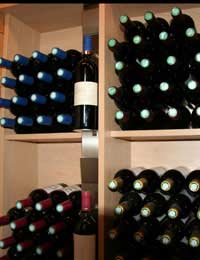Wine Auctions

You might not have given it a great deal of thought but wine auctions are big business. A single bottle can go for hundreds, even many thousands in some instances (a bottle of Burgundy fetched over £3,000 a few years ago, for instance), with cases going for sometimes ridiculous amounts.
Of course, this doesn’t mean you can make a killing in the wine market, or even find some remarkable wine bargains. You need to know wine, and not just as an amateur, but as a professional, in order to compete well at auctions.Many experts suggest that you begin by learning about specific regions, with Bordeaux and Burgundy the choice of many serious wine collectors. Bordeaux is probably the best starting point; it has large estates, which means the novice can learn about the winemakers more easily.
How It Works
A wine auction works exactly the same way as any other auction, although they tend to be run by auction houses that specialise in wine. In most cases you’ll begin by filling in a form with your name and address and produce valid identification, after which you’ll receive a bidding number (those who can’t be present can register bids for specific lots with the auction house).You need to become familiar with the language of viniculture and wine auctions. At an auction, for example, a wine lot that doesn’t meet its reserve is “bought back” by the auction house. Ullage is the amount of wine in the bottle lost to evaporation, generally expressed in a measurements (x centimetres) or a term like “mid-shoulder” as an indication. More recent wines, especially those bottled in the last five years, should definitely not show any ullage.Obviously you bid, and the person with the last, highest bid is the winner. There are a few tricks that can help you along. Keep your money until later in the auction, by which time many other buyers will have already run through their money. At that point you can sometimes pick up a bargain.Additionally, if two similar lots follow each other, go for the second. That can be very valuable if one bidder pays a high price for the first lot – once he’s out of the way, the second lot might well be knocked down for a much lower price.
Many buyers will go for the big names and major vintages – the kind of wines that are the stuff of legend, if you will. The chances are that you can’t compete for them, or even for the smaller names that are fashionable. This is where knowledge comes in handy. Cult wines that have fallen out of fashion can be snapped up, and so can some lesser-loved vintages. With a Bordeaux vintage, try bidding on a ’94, a ’97 or a ’98 – all of which sell for much lower prices than the big vintages, but are often just as good.
Online Wine Auctions
You’ll quickly discover that there are plenty of online wine auctions these days, and they can be a good way to dip your toe into the water. The prices are lower, and so is the risk (these aren’t eBay auctions, but through auction houses). Once you know your way around them, and you’ve picked up some good wines, it will be time to go to an in-person wine and test your mettle against the big boys.- Five Things to Beware of With TV Auctions
- How to Organise Your Own Charity Auction
- Dos and Don'ts for Charity Auctions
- TV Auction Channels: How Do They Work?
- How Charity Auctions Work?
- How to Research a Property Properly
- Unusual Property Auctions
- The Role of an Auctioneer
- The History of Auctions
- Police and Government Recovered Property Auctions
- How Do Reverse Auctions Work?
- Buying a Car at An Auction
- Collectible Auctions
- How to Buy Art at Auction
- Auction Terminology
- How to Buy Commercial Property at Auction
- The Role of a Auction House
- Buying a Residential Property at Auction
- In-Person Auctions and Auction By Proxy
- How to Use Online Auctions


Re: Problem With an Item Bought at Auction
Acquired a Russian Submarine clock from South Cheshire Autions when the package arrived I was having treatment when I…
Re: How to Set a Reserve Price in an Auction
I set a reserve price of £400 on my TGA Mobility Scooter - having researched online prices which showed my model…
Re: Beware of the Invisible Bidder
House on at auction online. Bidders must register - providing ID and contact details. I've registered had survey etc and am…
Re: Choosing Which Type of Auction to Sell At
Hello Explore Auctions, I would like you to evaluate my Silver item and send me a report about the item…
Re: Consumer Law and Auction Goods
I purchased a three-bedroom house from an Auction house when I had paid the money and then I received an email from the auction…
Re: How to Pay For Goods at Auction
A good blog always comes up with new and exciting information and while reading I felt that this blog has all those qualities…
Re: How to Avoid Forgeries, Fakes and Fraud at Auction
I won a few lots at auctionette They specified a slightly broken gilding at top of an edwardian mirror…
Re: Beware of the Invisible Bidder
One of the best posts I have ever come across. Not only did I learn a lot of hidden things, but I also got to know so many new…
Re: Problem With an Item Bought at Auction
Bought a beswick horse from The Action House on line timed auction.Got condition report first.All good.They offered…
Re: Consumer Law and Auction Goods
I had registered with easy live auction to bid for a watch I was successful in winning the item I duly paid the full amount by…